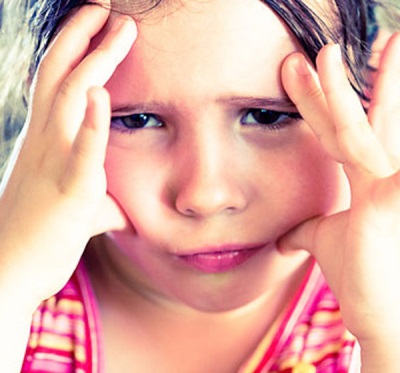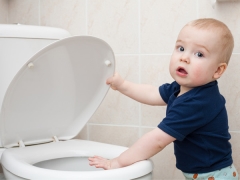Incontinence in children - encopresis
When a child soils his pants, it gives him discomfort and causes concern to his parents. Why may fecal incontinence and how to get rid of this problem?
What is it?
Fecal incontinence is an unconscious defecation of children older than three years of age. Another name for such an unintentional excretion of feces is encopresis. Since babies younger than three years old are only learning to control the work of their intestines, at this age involuntary feces are not considered to be fecal incontinence.
Encopresis is noted in 1-3% of children, while in boys this disorder is several times more common. Parents may mistakenly consider this problem as a manifestation of diarrhea, but more often encopresis accompanies prolonged constipation. The main symptom of encopresis is traces of feces on linen.
The reasons
The main factor causing fecal incontinence is considered chronic constipation. Due to this problem, the rectum is stretched, and the anus cannot close tightly to hold the feces. In most cases, this type of constipation is caused by malnutrition and psychological factors, such as persistent potty training.
Other causes of encopresis are:
- Consequences of intrauterine hypoxia, in particular encephalopathy.
- Neurosis.
- Dysbacteriosis.
- Congenital bowel disease.
- Injuries to the anus and buttock area.
- Stressful situations (family conflicts, divorce, death of parents and others).
- Intestinal infections, transferred in the first years of life.
- Hirschsprung disease.
Disease progression
Most often, the problem begins with either an unhealthy diet (there is little fiber and water in the child’s diet), or a child’s sense of shame associated with defecation (if the child is ashamed or hesitates to go to the toilet outside the house). The result will be excessively dense feces of large volume, which are filled with intestines. Because of him, defecation becomes traumatic (often there are cracks of the anus, as well as hemorrhoids) and painful.
As a consequence of the delayed feces in the rectum, it stretches and the sensitivity of its tissues decreases. The muscular bowel apparatus begins to contract worse, and the child stops feeling the urge to empty. The encopresis that appeared as a result is a very embarrassing problem for the child, which is why the situation is even more aggravated.

Diagnostics
To make a diagnosis, you need to ask the parents about how the child eats and how he goes to the toilet. Sometimes a rectal examination is performed on a child to determine how much the intestines are stretched and filled with feces. If Hirschsprung's disease is suspected, a contrast X-ray study is prescribed to the baby.
Treatment
A pediatrician and a gastroenterologist can help a child with incontinence. To effectively get rid of the problem, you should gradually eliminate constipation and help the intestines begin to function normally. Often the treatment is long - 6-12 months.
First, the intestines are cleaned of fecal masses that have accumulated in it, after which they make sure that the child does not develop constipation. To do this, they correct the nutrition of the baby, provide the intake of the necessary amount of liquid into his body, prescribe drugs with dietary fiber. All actions will be aimed at the formation of the correct emptying habits and the prevention of constipation. Often doctors also prescribe lungs. laxatives drugs and psychotherapy.
Psychology Prevention and Tips
Child psychologists say that in order to avoid incontinence of feces in children, parents should prevent the development of constipation and not provoke a situation where the child may experience the shame associated with the process of defecation. You should not force the child to potty, shame him and make fun. The process should take place gradually with maximum support and patience from loved ones.

See the following video for more on neurotic encopresis.
In the baby's diet should be enough foods with fiber - vegetables, cereals, fruits, legumes. If a child eats few such products, increase their content in the diet should be gradually, so as not to appear flatulence. It is also important that the child drink enough pure water.






